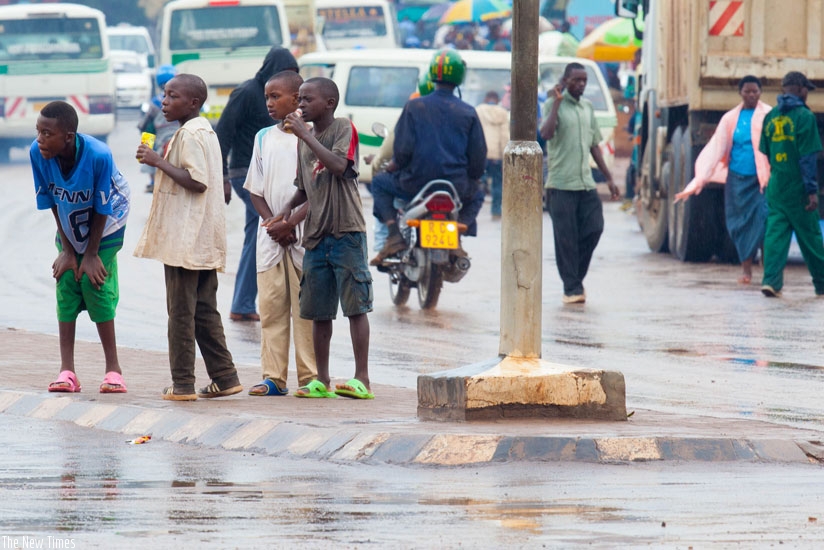The presence of children living on the streets remains a significant and complex issue in Rwanda, stemming from a variety of factors that push young people away from their homes and into vulnerable situations.
A recent look into the lives of these children and their families in Kinyinya Sector, Kagugu Cell, reveals a difficult reality, often driven by poverty, family breakdown, and the lure of independence, sometimes fueled by substance abuse.
Many children find themselves on the streets due to a lack of parental care or extreme hunger at home. Liza Clarine, one such child, shared with Beza Hit News that her father passed away, and her mother is currently in prison, leaving her without family support.
Similarly, Dusengimana Fabrice explained his situation arose after his father forced him and his siblings out of their home. With no place to go or money for rent, they had no choice but to try and survive on the streets.

However, the stories from some parents offer a different perspective. Mukeshimana Esither stated that her child became “disobedient despite having everything they needed at home”. On the other hand, Ishimwe Devotha highlighted financial struggles, explaining her inability to afford her child’s education and appealing to authorities for help to get them into school.
“The issue of children living on the streets continues to be challenging for various reasons,” stated a local community leader from Kinyinya Sector. “Some children choose to refuse education, others are driven by poverty in their families, while some are affected by family conflict. Furthermore, there are also those who use drugs.”
Efforts to address this problem are ongoing. Mpazimpaka Patrick, the Executive Secretary of Kagugu Cell, revealed that last year, over 70 children were successfully returned to school and provided with necessary support. However, he admitted that most of them have since returned to the streets. He assured that local authorities are working to reintegrate them once more.
A key difficulty in these reintegration efforts is the children’s resistance. Many have grown accustomed to an independent street life, and some have become involved in drug abuse. This makes them defiant and unwilling to return to living with their parents, as they seek the freedom to engage in activities they cannot pursue under parental supervision. They choose street life for the perceived autonomy it offers.
The complex nature of this issue requires ongoing collaboration between families, communities, and local authorities to address the root causes and provide sustainable solutions for these vulnerable children.





